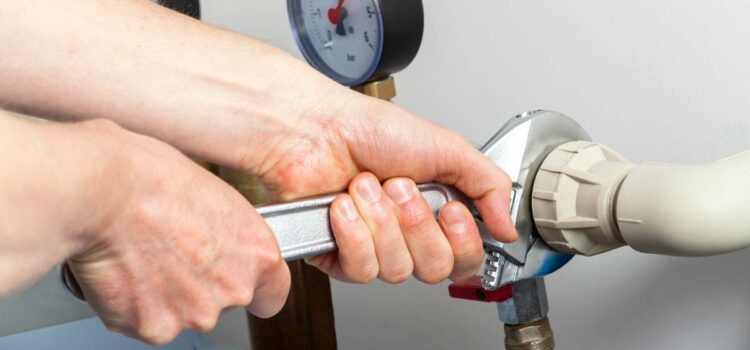If you live in Central Texas, then you probably know that a water softener is a must-have appliance if you don’t want to deal with hard water issues constantly. These appliances work hard in the background, silently removing all those unwanted minerals from your tap water without the need for much attention at all. With regular care and maintenance by a professional, a water softener can continue to do its job without issue for up to 15 years—but this doesn’t mean they’re immune to problems. If yours begins to show any signs of an issue, it’s important to address it quickly to preserve the system’s lifespan.
To help keep your water softener running optimally, we’ve compiled some tips and tricks on how to solve common problems—with or without the need for professional assistance. Read on for more information about solving these common water softener issues!
Problem #1: Blockages
The most common issue with water softeners is that they can become clogged or blocked. This happens when too much mineral builds up in the system and forms a blockage, preventing it from working properly. If you notice a decrease in water pressure or find that your tap water has an odd taste or smell, chances are your system may be blocked and needs attention.
To fix this problem, start by checking all of the hoses connected to the unit for any kinks and then clean out any sediment buildup inside of the pipes using a brush or cloth. You should also check if there are any parts of the system which need replacing—like valves, screens, filters etc.
Problem #2: Misconfigured Settings
Another issue you might experience with your water softener is incorrect regeneration settings due to either poor installation or improper programming. Regeneration refers to how often a unit cleans itself by flushing minerals from its resin tank—usually every two weeks on average—but depending on where you live and other factors like household size/water usage, these settings may not be correct for maximum efficiency.
To solve this problem yourself without outside help, first check to make sure all parameters (like salt dosage levels) have been correctly set according to manufacturer instructions—if not, then adjust them accordingly. Next, run some tests until you’re satisfied with performance results before resetting regenerations cycles as needed based off those results.
Problems #3 & #4: Leaks & Salt Overflows
In addition to the two issues listed above, other common problems with water softeners may include leaks from the unit or an overflow of salt. Leaks can be caused by worn out components, loose connections, or poor sealing—all of which require professional assistance if you don’t have the necessary tools and skills. If your system is overflowing with salt, it’s likely because your regeneration settings are incorrect and need adjusting. When too much salt enters a unit in one cycle, it can cause excess build-up leading to overflows, so it’s important to adjust these parameters as needed until you get them right.
Problem #5: Lack of Maintenance
Finally, many people also experience issues with their water softener not producing enough softened water due to a lack of regular maintenance and cleaning. This is especially true if your system has been running consistently for more than seven years—at this point its resin tank should be cleaned thoroughly (at least once every year) in order to remove any built up minerals that could restrict flow and reduce output quality. Doing so will help keep your system working optimally for longer periods of time without needing major repairs or replacements!
Key Takeaway
In conclusion, water softeners are essential in treating hard water problems, but they can also develop issues that require troubleshooting. Now that you know some tips for solving common water softener problems, it’s time to take action and make sure your water system is functioning correctly. Whether you need a repair or installation of a new water softener or reverse osmosis system, Austin Water Solutions is here to help. Our team of professionals has been providing quality water treatment solutions in Kyle, TX, and other cities for years, and we are confident that we can help you with your water needs. Don’t hesitate to contact us today, and let’s work together to ensure that you have access to clean and soft water at all times. Remember, for the best Austin TX water softeners and Austin TX reverse osmosis systems, Austin Water Solutions is your go-to provider.
